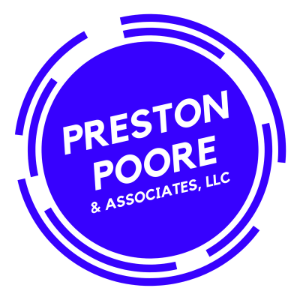The Enemy of Anxiety
Printer-Friendly Version
You’re probably reading this because you’re experiencing some level of anxiety and are looking for a solution. Before you read on, take a quick self-assessment and determine your level of anxiety…
Anxiety Self-Assessment Scale
Instructions: This scale is designed for your personal use. There are no right or wrong answers. Usually, your first response is the best. For each item, decide if it:
- NEVER applies to you (mark 0)
- SOMETIMES applies to you (mark 1)
- HALF THE TIME applies to you (mark 2)
- FREQUENTLY applies to you (mark 3)
- ALWAYS applies to you (mark 4)
Make sure you base your answers on how you actually behave in your daily life, not on how you would like to be.
- I feel tense, nervous, restless, or agitated.
- I feel afraid for no apparent reason.
- I worry about bad things that might happen to me or those I care about.
- I have difficulty falling asleep, staying asleep, or waking up early.
- I have difficulty overeating, too little, or digesting my food.
- I wish I knew a way to make myself more relaxed.
- I have difficulty with my concentration, memory, or thinking.
- I would say I am anxious much of the time.
- From time to time, I have experienced a racing heartbeat, cold hands or feet, dry mouth, sweating, tight muscles, difficulty breathing, numbness, frequent urination, or hot/cold flashes.
- I wish I could be as relaxed with myself as others seem to be.
SCORING: Add all scores together . . . TOTAL SCORE ___________
- MINIMAL ANXIETY – 0 to 8 point
- MILD ANXIETY – 9 to 16 points
- MODERATE ANXIETY – 17 to 24 points
- HIGH ANXIETY (Warning Level) – 25 to 32 points
- EXTREME ANXIETY (Warning Level) – 33 to 40 points
Source: http://www.sadag.org/images/pdf/anxiety%20self.pdf
How did you rate yourself? Does your anxiety level concern you? How would you like to score yourself in the future? What’s the gap between where you are and where you want to be? Do you want to experience authentic and genuine peace? If so, I encourage you to read on . . .
First, let’s talk about the definition of anxiety and its destructive impact. Anxiety is “an abnormal and overwhelming sense of apprehension and fear often marked by physiological signs (such as sweating, tension, and increased pulse), by doubt concerning the reality and nature of the threat, and by self-doubt about one’s capacity to cope with it.” [i] Anxiety is a behavioral response to worry. Worry is “to subject to persistent or nagging attention or effort.” [ii] Furthermore, worry “implies an incessant goading or attacking that drives one to desperation.” [iii] When you worry about uncertainties, you become anxious and stressed.
The anxiety problem is epidemic, and it exhausts mental, physical, and spiritual energy; the health cost can be high. Here are the facts according to the anxietycentre.com website:
- Forty million people in the U.S. will experience impairment because of an anxiety condition this year.
- Only 4 million will receive treatment, and of those, only 400,000 will receive proper treatment.
- Those who experience anxiety and stress have a high propensity for drug abuse and addiction.
- 65% of North Americans take prescription medications daily, 43% take mood-altering prescriptions regularly.
- Paxil and Zoloft (two of the more popular anti-anxiety medications) ranked 7th and 8th in the top ten prescribed medications in the U.S.
- Recreational drugs are also used to cope with anxiety. 42% of young adults in America regularly use recreational drugs (National Institute on Drug Abuse).
- Alcohol is commonly used to cope with anxiety.
- 25 – 40% of all patients in U.S. hospitals are being treated for complications resulting from alcohol-related problems (The Marin Institute).
- Alcohol-related car crashes are the number one killer of teens. Alcohol use is also associated with homicides, suicides, and drownings—the next three leading causes of death among youth (Center for Substance Abuse Prevention).
The website goes on to outline anxiety symptoms, including:
- Often feel out of control of their health and life
- Experience higher levels of overall stress
- Often struggle with low self-esteem
- Feel nervous in many social situations
- Have difficulty managing pressure
- Have higher expectations of themselves and others
- Feel returned love is performance-based
- Often have unhealthy boundaries
- Are often workaholics
- Are more often sick
- Often have unhealthy relationships
- Visit the doctor more often
- Tax the medical system (with frequent trips to their doctor or emergency rooms)
- Are more likely to take medications
- They are more likely to have other health problems
- Are overall more unhappy
- Experience erratic emotional behaviors
- Often quick to get angry
- Regularly feel unsettled
- Regularly feel overwhelmed
- Feel disconnected or detached from reality and life
- Often feel they are just on the edge of losing control
- Usually aren’t reliable (because their symptoms may prevent them from following through)
- Become inward-focused and dwell on their health condition and personal problems
- May jump from relationship to relationship in search of perfection
- May jump from job to job because of higher levels of stress
- Live a restricted lifestyle (within their self-imposed “safe zones”)
- Feel life is passing them by
- Question their faith and God’s presence in their lives
- Feel at a distance from God
Do you experience any of the above symptoms? I’m all too familiar with many of them. The challenge is that people are looking to medicate themselves, become numb, and escape the anxiety in their lives. They want peace, rest, and ease. But the great enemy of peace is anxiety[iv]. Apprehension has a significant impact on our lives and our relationship with God. For the general population, anxiety is a complex issue. For the Believer, it is a more straightforward issue and can be handled through trusting in God. People of Faith shouldn’t be filled with anxiety. Instead, they need to bring their problems and needs to the Lord with the confidence that He cares for them and His care is sufficient.[v] The Bible says:
Don’t fret or worry. Instead of worrying, pray. Let petitions and praises shape your worries into prayers, letting God know your concerns. Before you know it, a sense of God’s wholeness, everything coming together for good, will come and settle you down. It’s wonderful what happens when Christ displaces worry at the center of your life.[vi] (Philippians 4:6-7-The Message).
Peace is the enemy of anxiety. God-given peace is the inner tranquility and confidence that He is in control. This does not mean the absence of trials on the outside, but it does mean quiet confidence within, regardless of circumstances, people, or things.[vii] This peace will safeguard your heart and mind through Christ Jesus; it will keep you from sinning under your troubles and from sinking under them; keep you calm and relaxed under pressure.
In Dale Carnegie’s book, “How to Stop Worrying and Start Living,” he provided very practical advice on how to handle worry:
- Pray
- Ask yourself, “What is the worst that can possibly happen?”
- Prepare to accept it if you have to
- Then calmly proceed to improve upon the worst
I firmly believe that anxiety, worry, and stress can be overcome by trusting God, turning everything over to Him in prayer, replacing worry with worship, and acting as Dale Carnegie suggests. God’s peace will fill you and enable you to handle any circumstance through these things.
If you are struggling with anxiety right now, pray this prayer with me: Lord, I need you. Please protect me physically, emotionally, and spiritually with your righteous right hand. Calm the waters of my heart even as the vast ocean around me rages. Amid the chaos and panic, please give me a sense of divine inner peace, help me trust you in all things, and know that you are in control. In Jesus’ great and mighty name, I pray, Amen!
My friend, may the Lord bless you, keep you and give you peace.
Do you want to discover more about overcoming anxiety and becoming a leader others will gladly follow? Visit my website, prestonpoore.com, today!
Cheers,
Preston
[i] Mish, F. C. (2003). Preface. Merriam-Webster’s collegiate dictionary. (Eleventh ed.). Springfield, MA: Merriam-Webster, Inc.
[ii] Mish, F. C. (2003). Preface. Merriam-Webster’s collegiate dictionary. (Eleventh ed.). Springfield, MA: Merriam-Webster, Inc.
[iii] Mish, F. C. (2003). Preface. Merriam-Webster’s collegiate dictionary. (Eleventh ed.). Springfield, MA: Merriam-Webster, Inc.
[iv] Utley, R. J. (1997). Paul Bound, the Gospel Unbound: Letters from Prison (Colossians, Ephesians, and Philemon, then later, Philippians) (Vol. Volume 8). Marshall, TX: Bible Lessons International.
[v] Ellsworth, R. (2004). Opening up Philippians (p. 84). Leominster: Day One Publications.
[vi] Peterson, E. H. (2005). The Message: the Bible in contemporary language (Php 4:6–7). Colorado Springs, CO: NavPress.
[vii] Wiersbe, W. W. (1996). The Bible exposition commentary (Vol. 2, p. 95). Wheaton, IL: Victor Books.

Preston Poore
I help leaders lead—without the buzzwords or boring theories. After years in the Fortune 500 world, I’ve seen it all—bad bosses, great teams, and more leadership fails than I can count. Now, I share real stories, practical tips, and the occasional hard-earned lesson to help you lead with confidence. Let’s figure this out together.
Discover Your Life Purpose
Do you wake up each day dreading the idea of spending another day at work? If you’ve failed to discover and build your life around your life purpose, you might feel dissatisfied with your life. Flip the script! Get this special eBook, discover your purpose, and begin living a more fulfilling life today!


